Here in Australia, we are incredibly fortunate to have some of the best natural landscapes anywhere in the world. With this in mind, it’s not hard to see why so many people are immersing themselves in our great outdoors for all kinds of recreational activities. However, it’s important that when we do so, we do it in a way that demonstrates care for our surroundings and their ongoing protection. This is, in essence, what leave no trace responsible travel is all about.
Here, we cover the 7 principles of leave no trace camping so you can enjoy the great outdoors in the most responsible way possible.
Principle 1: Plan ahead and prepare
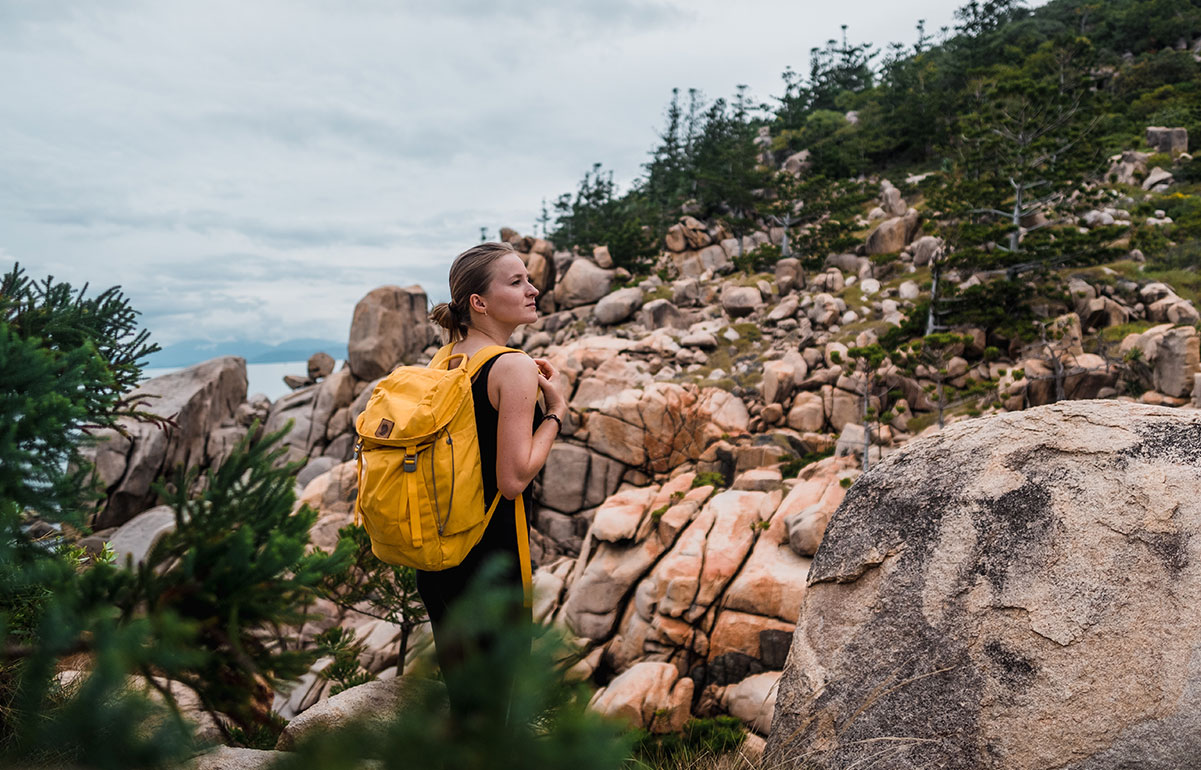
The first principle of leave no trace camping is to plan ahead. Think about the goals of your trip and how you can achieve these safely and without damaging the environment around you. Do some research about your desired location and ensure you have the technical skills
and required equipment to ensure a responsible travel experience. Consider the weather during your planned trip and postpone it if extreme events could impact either personal safety or your ability to stay without impacting the land.
Principle 2: Travel and camp on durable surfaces
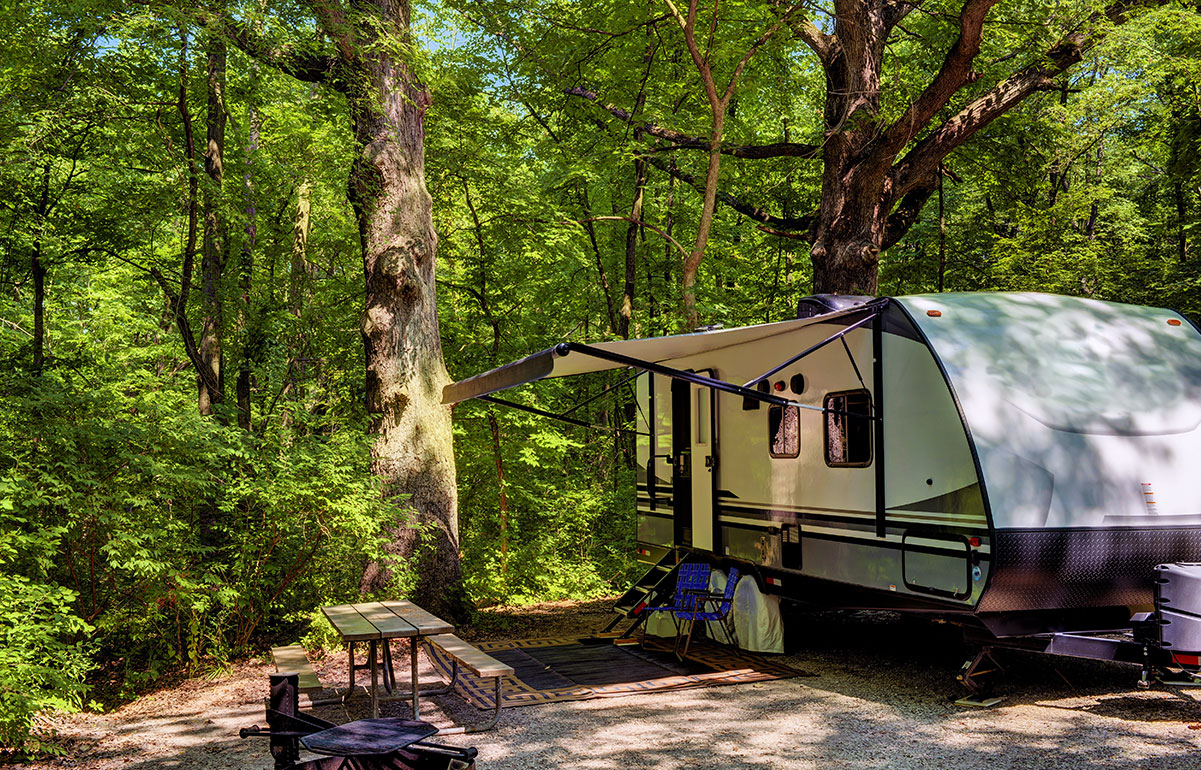
To avoid vegetation damage, soil erosion and disruption to local wildlife, it’s important to choose a durable surface for your sustainable camping trip. Keep an eye out for soft surfaces, muddy patches, mangroves and other fragile surfaces. Avoiding these surfaces is not only important for setting up your caravan or tent but also for bushwalks, hikes and the like.
Instead, focus on signed walking tracks, communal picnic spots and established campsites to minimise environmental disturbance.
Principle 3: Dispose of waste properly
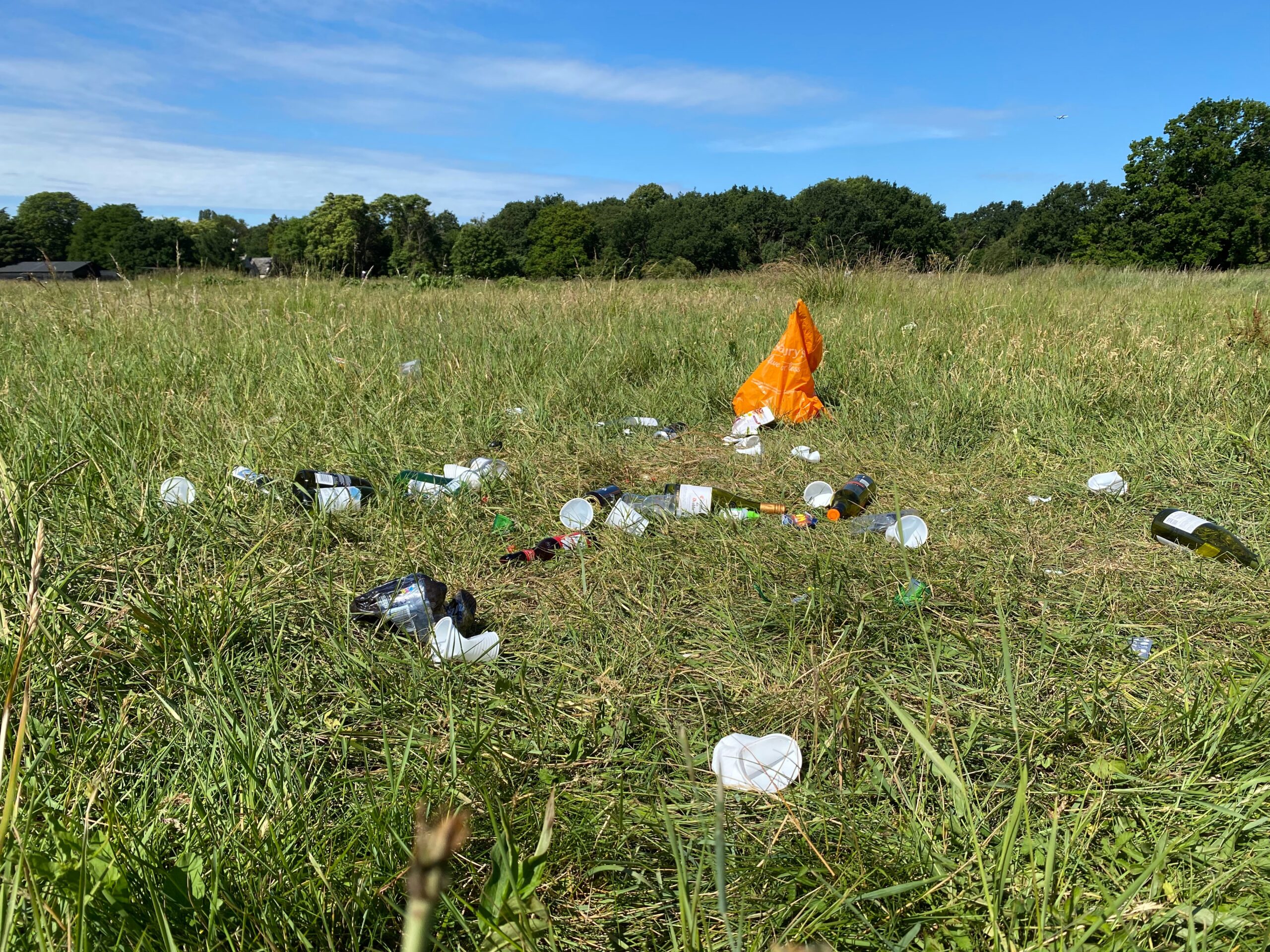
It goes without saying, but one of the key principles of leave no trace camping is to take all waste with you when you leave, including kitchen waste, greywater, sewage and general rubbish. You might think that food scraps are okay to leave behind however, not all human food is safe for animals and should be disposed of properly.
Before leaving your site, do a thorough inspection of the surrounding area and make sure any and all rubbish has been removed. A good rule of thumb is that if it wasn’t there before you came, it shouldn’t be there after you leave.
Principle 4: Leave what you find
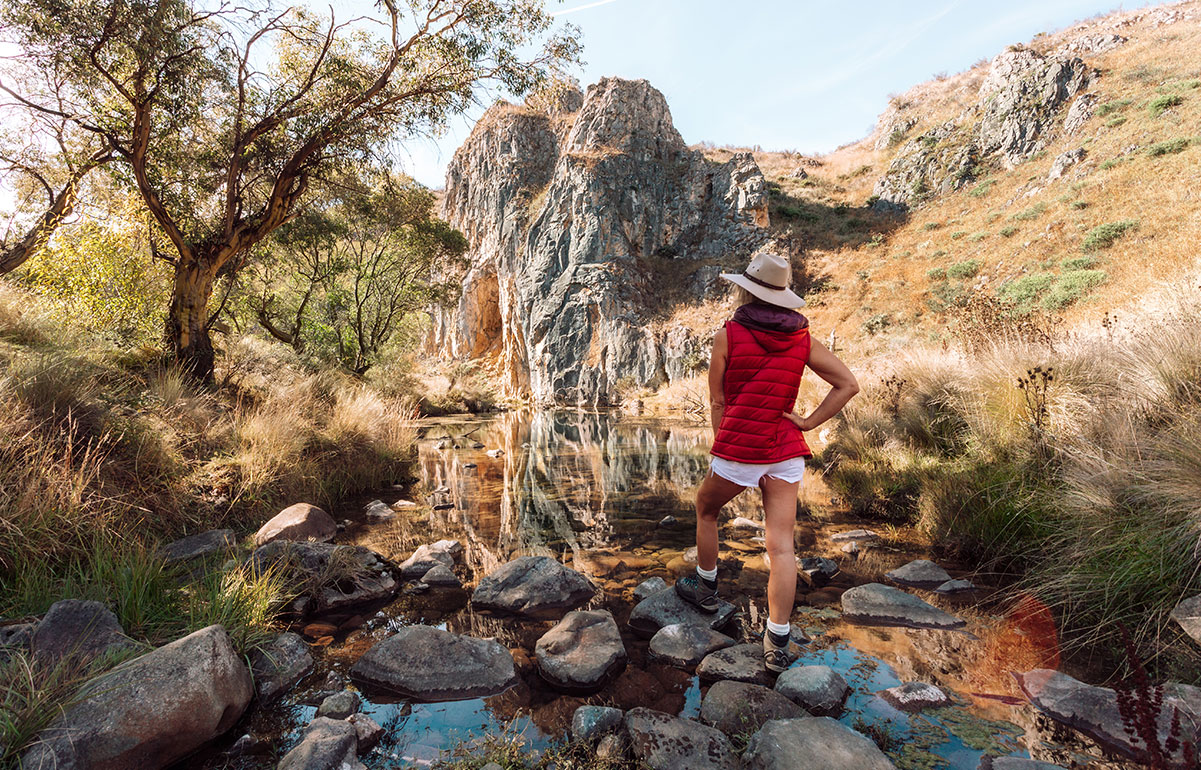
On the flip side, it’s important not to disturb your surroundings by taking things home with you when you vacate a camping spot. While it might seem harmless, removing things like rocks, plants, and other natural artefacts can not only impact the ecological balance of the area it also detracts from the experience of those who come after you.
Help retain our environment’s natural beauty by leaving it as you found it.
Principle 5: Minimise campfire impacts

Bushfires are a significant risk in Australia, with thousands of kilometres of land being destroyed every year. While some are naturally occurring, many are the result of careless campfires.
The best way to avoid this is to avoid setting a fire. However, if you do, ensure your fire is lit in a designated fire pit and is carefully controlled at all times. When it’s time to go to bed or leave the site, ensure the fire is completely extinguished and no hot coals remain; these can easily reignite and quickly get out of control if not carefully monitored.
Principle 6: Respect wildlife

Wildlife encounters are one of the many reasons we love to immerse ourselves in nature. We can learn so much from animals in their natural habitat, which is incredibly exciting. Despite this, it’s so important that we do not disturb or frighten them and that we keep our distance in order to promote their survival.
Regardless of the size or species of wildlife you encounter, it’s your responsibility to coexist with them responsibly in their natural habitat.
Principle 7: Be considerate of others
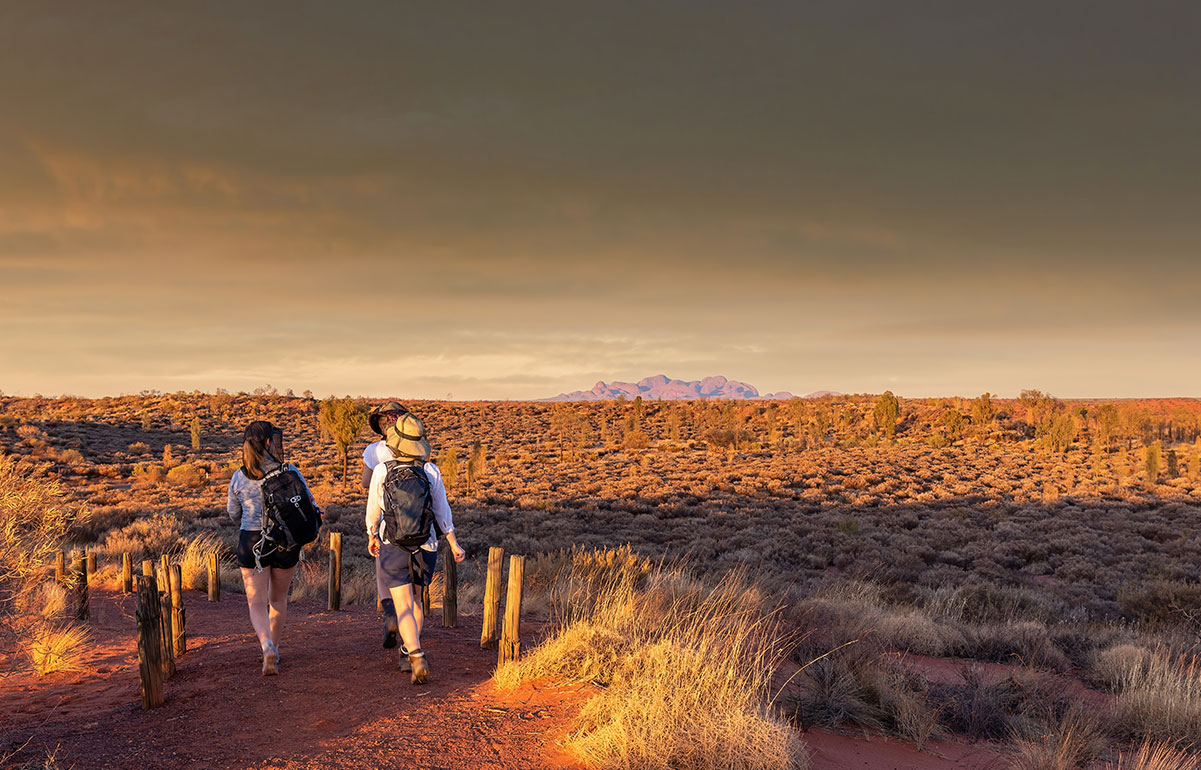
As visitors to the land, it’s important to be respectful of the traditional land owners and to ensure we are considerate of all those who we share the space with. Remember to behave responsibly at all times and to exhibit outdoor etiquette whenever you encounter other outdoor adventurers.


